 tag/introspection
tag/introspection
2019.08.28
I noticed it last night, that I was self-medicating alternating with an iOS game (Archero - which is really quite a satisfying little adventure) and reading the novel "Today Will Be Different". I knew I might feel a bit better if I hunkered down on some porchfest or loveblender tasks but I was just not feeling it.
(Another symptom of something being off, from this very entry: I'm using colons and semi-colons. I hardly ever use colons and semi-colons, and I fear I don't use them well.)
I don't take much stock in my own intrinsic feelings, and that's somewhere between wise self-analysis and a self-fulfilling prophecy. (I am profoundly shallow, my entire nervous system and philosophical system are grounded in how surface interactions are more critical in their accountability than obscured inner states.) But I wonder if this very occasionally recurring heap of the blahs was accurately diagnosed by my buddy Dylan as low level depression (but I think think he thinks that about everybody) or as a pileup of anhedonia (inability to feel pleasure) my therapist once mentioned me having... and are those just descriptions or useful signposts for corrections or adaptions?
But despite being aware that this might be a "the call is coming from inside the house!!!!" thing, I can see some external factors:
-
First and foremost: I got a new financial advisor who helped me do a general inventory. (Erica Hubbard in Charlestown- super recommended from friends) The news is generally solid and good, the result of the extraordinary terrific fortune of stumbling into a tech career without much debt and then dutifully maxing out 401Ks as they came up. In fact - almost too good, in that she plotted out a plan with me retiring or at least downshifting in 10 years, not the 20 I'd consider traditional. Holy crap! On the one hand, that's great. I feel like I've always been good at having a pile of personal projects going, and with just a bit if discipline would make good use of a retired state. On the other hand... to quote the poet Samuel Menashe:
Before long the end
The concept of early retirement opens some doors but closes many others - and bring homes a sobering realization that many of the paths not taken just ain't gonna be taken by me this go-round. (Or in the realm of romance, the haz-beens of breakups and the never-wuzes of crushes... or my poignant knack of being the penultimate romantic interest.)
Of the beginning
Begins to bend
To the beginning
Of the end you live
With some misgivings
About what you did. - Work is a bit of a grind. I'm doing a lot of stuff to increase accessibility on my company's website. Important stuff, but a bunch of small victories (and some frustrating deferrals) in an endless war.
- Melissa is having a frustrating time at work, and I know my advice for looking on the bright side or understanding about hedonic setpoints ain't always useful.
- My weight has been more or less stuck above 200 for a year and a half, and not that I'm that strict with myself but it feels like it requires too much discipline just to keep it there.
- I get some anxiety about not doing enough for the bands I'm in, or having to pick between competing gigs for two bands, or between a band gig where I know I'd be useful vs other commitments.
- I've noticed my typing getting somewhat worse - the odd phonetic typos I make becoming more rampant. I feel like it spiked a few weeks ago and receded but still... I feel it might be a side effect of a kind of growth but there's a risk that it represents decay.
- As always, the general fears of the age. The arctic's on fire, and our president is mostly intent on making the most compelling reality television possible.
2019.08.14
I wonder if I love you too much. I guess when people say "too much" what they really mean is "more than you." Probably just paranoia. It's just hitting me how much you've come to mean to me in so short a time, and what it would mean to lose you.Maybe it wasn't just paranoia. I worry I've never loved as vibrantly as other folks seem to.
I don't love people for their Nouns, who they "really are" - maybe because I can't bear witness to their inner life! I love people's Verbs - interactions that outsiders (such as me) can observe. Actions people perform in the public sphere have their bona fides of objective reality, and so I can know my feelings are rooted in truth.
But is that love of other folks, then? Or just admiration?
As a young teen, I figured out that I couldn't given free rein to my desires. Lust might lead to STDs and unwanted pregnancies. Hunger might lead to me becoming fat(ter). And worst of all: acting on unfiltered feelings - lust, anger, greed, wrath, pride, envy, gluttony - put me at risk for eternal hellfire! Yeah, God could forgive, but repeated transgressions (the verb) brought the veracity of the repentance (the noun) into question. And which of those temporary pleasures would be worth eternal punishment?
When I do try to survey my own emotional landscape, I'm appalled at how ego-driven so much of it is; my obsession of the importance of objective (yet never fully and confidently known) truths leaves me hungry for external validation - and so I like how reading books tells me I'm smart, playing in bands tells me I'm talented, playing video games tells me I'm empowered, at least in those virtual microcosms. (I don't think I'm alone in hunger, especially in folks raised as boys - not that I think girls have it better. But some of the most damning things to say about a dude is that he's a bad driver, or not funny, or not competent in bed - many men want their ego stroked as much as any of their other parts.)
So, love from other folks: am I seeking love? Or just admiration?
And to top it off - since the interpretation of objective reality is a group project, I can't put too much weight on what feelings I do find arising in me. I'm not such a martyr that I have to ignore my own preferences, but I am compelled to evaluate my behavior based on what seems good for the group - or in the case of romance, the couple - not just me.
So I dunno. Is it this complicated for everyone?
I had a dream where - I think - people were using certain foodstuffs as power system. I woke up enough to write "the exothermic aesthetic of yellow rice and yogurt sauce"
Quick question,
If "illegals" are lazy freeloaders just leaching off the system,
Why does ICE always raid workplaces?
2018.10.07
The Somebody Else’s Problem field is much simpler and more effective, and what’s more can be run for over a hundred years on a single torch battery. This is because it relies on people’s natural disposition not to see anything they don’t want to, weren’t expecting, or can’t explain. If Effrafax had painted the mountain pink and erected a cheap and simple Somebody Else’s Problem field on it, then people would have walked past the mountain, round it, even over it, and simply never have noticed that the thing was thereA while back I realized pretending something had an SEP field on it was a good way of coping with things as long as A. they weren't actually affecting me and B. weren't my fault - and even better if C. there wasn't much I could do about it anyway. (The B and C elements are what kept it morally on the up and up.)
But there's a lot of problems that don't meet those conditions - especially A. There's a cognitive psychology term "catastrophizing" - building an irrational series of cause and effect leading to a terrible negative conclusion. I think people do at least a watered-down variant of it subconsciously all the damn time - I know I do. Even when folks don't explicitly link up a chain of events that lead to a far-fetched negative consequence, they tend to act as if that chain was in effect, and the result is anxiety. The world is too complex to do all possible modeling of cause-and-effect, and so we use short hand of "I should be worried about this" to help us make good decisions and keep up good behaviors, but that can be very wearing.
Andy Warhol suggested one remedy:
Sometimes people let the same problem make them miserable for years when they could just say, "So what." That's one of my favorite things to say. "So what." "My mother didn't love me." So what. "My husband won't ball me." So what. "I'm a success but I'm still alone." So what. I don't know how I made it through all the years before I learned how to do that trick. It took a long time for me to learn it, but once you do, you never forget.The trouble is, in theory you could "So What" every-damn-thing, and I don't think the results of that would be good - apathy or a general sense of pointlessness could result.
So ideally, I would make a cognitive tool like a "Virtual So What Field" I could apply and activate at will - but with the feeling I had the existential authority to apply it judiciously, as I saw fit. Some things I want to care about and get emotionally vested in, other things I could get help saying "So What", and chop down that branching tree of possible consequences near the root.
2018.09.09
Recently on kottke I saw this quote from Andy Warhol's autobiography:
Sometimes people let the same problem make them miserable for years when they could just say, "So what." That's one of my favorite things to say. "So what." "My mother didn't love me." So what. "My husband won't ball me." So what. "I'm a success but I'm still alone." So what. I don't know how I made it through all the years before I learned how to do that trick. It took a long time for me to learn it, but once you do, you never forget.Kottke goes on to compare that to Marcus Aurelius' stoicism (on how we have don't power over many outside events but we have power for our interpretation of them) and says
Not having control over some outside events was a source of despair and anxiety for me. These happenings were facts, they had a "truth" that I perceived as immutable; everyone knows you can't change facts! But human brains don't work like that. Your perception of and emotional reaction to events *is* your reality. Sure, those things happened, that person is that way, the system will do its thing, but you don't have to feel a certain way about any of it.I've been toying with using this idea a bit. (While thinking of the Miles Davis' song So What) I guess though, I have reservations that it's incomplete; like it's not a technique you'd want to apply to everything in life, and so misses Kant's idea "Act only in accordance with that maxim through which you can at the same time will that it become a universal law". If I used "So What" all the time, or for everything, I would be callous and apathetic - by itself, "So What" does provide a positive motive force. And there's no outside authority or yardstick telling me when I should and shouldn't apply it; I have to grow up and use judgment and take my lumps.
Stores that offer their own credit cards, with a large discount on the current purchase. Doesn't that just set off everyone's spidey sense?
2017.11.13
1. How does one recognize personal growth? At what point can an extrinsic improvement in behavior be safely or at least reasonably considered an intrinsic improvement in character? (AA says that even for people who by and large fix their lives, "once an addict always an addict" - given on how many fronts backsliding can happen, that while skills improve hardly anything becomes effortlessly graceful, I wonder if my intuitive skepticism about personal growth has some backing to it, or if everyone recognizes that but still finds these word games helpful)
2. Would more equanimity lead to more apathy? Does the anxiety and irritation and frustration and ego that I'd like to get away from serve critical purposes in guiding my behavior towards better things? Is not feeling anger about things that are out of my control a form of maturity or giving up? Can cheerful reason carry the load of getting me to behave well and pursue worthwhile things that otherwise find their impetus in my discomfort and discomfort? (And if so, has this always been the case? Would I always have been as productive a person, or even more so, if I didn't carry these burdens? Should I try to help young people I might advise to also pursue this equanimity or is there even more of a risk they don't have the moral or intellectual framework to carry that load, and so should rely on good old appeal to authority and anxiety?)
3. I feel that my self is best represented not as a unified thing, but at least as two parts - the intuitive, emotional elephant and the rational, narrative rider at the very least. But, am I best thought of as only that 1-2 split? Or do I, like Whitman, "contain multitudes"? This problem is even more academic than the other two - I'm not sure if it makes a big difference if I have an inner child or inner children, if each neurologically-based impulse-generating can act like a persona or is just a thought thinking itself (or more exactly an emotion er...feeling...er... itself) and if my rational narrator, so quick to claim credit for being the truest me (but full of so many post-facto rationalizations for what I actually do) is a monolithic thing too? But it's something I'd love to know, so I can come up with more effective strategies of guiding the whole lot of them where I'd like to go.
So if anyone has the answers to those, let me know, otherwise I'll just be over here thinking for a while.
Christopher Mooney answering the Quora "How do people feel in their last minutes of life?":
I had a near death experience once, when I was pretty sure I was 20–30 seconds away from the end. Like, I mean, I was completely sure I was about to die.
I remember my feelings at the time, vividly. How could you forget.
1: I actually felt very calm. People are scared of death. But once you know it's happening, and you can't do anything about it, you find peace. It was actually one of the calmest, most peaceful moments I can recall in my life.
2: I was very very reflective. When you hear the stereotypes of "your life flashing before your eyes", that's exactly how I felt. I reflected on my life, and who I was, and if I could have done anything better.
3: It sounds funny, but I also really had this "well, this is just my luck!" kind of feeling. I actually found it kind of humorous. I was kind of laughing a bit, about how unlucky I was!
This experience, actually helped me find a lot of faith. Because, although I was an atheist at the time, I didn't actually feel like it was the end. I wasn't thinking in terms of my existence being over. I was almost feeling like I was just moving on from one part of my life, to the next.
I, kind of, had no fear, because I didn't think it was that big a deal? I know this sounds crazy, but all I can say is, that when the moment came, my mind was completely prepared for it. My brain kind of changed, and I understood everything, and was prepared for everything. It's almost like the human body/brain is completely prepared for it's demise, but you don't get to access this skill until you really need it?
2017.08.01

click for skullslinkies
(This model is relatively compatible with Minsky's "Society of Mind" concept.)
These thought slinkies were feeling anxious, and also frustrated by the short-livedness of their own existence, and predicting that once my normal, narrative-self reasserted itself, all their concerns about being in that state would be forgotten...
Anyway, I made skullslinkies, an animation based on this vision.
Went to a Ear/Nose/Throat doctor. For most of the summer I've had a lot of post-nasal drip, a lot of hocking, especially in the morning. The allergist did the skin tests, but nothing looked like a likely culprit. But the E/N/T doctor's suggestion- more water (with caffeinated stuff counting as anti-water, basically) and some flonase for a while seems kind of unsatisfyingly un-substantive.
He asked about how well I was sleeping. I guess the answer is, ok? It's hard to know what to compare it to, really. I'm not at the far end of the spectrum of falling asleep at inappropriate times or always feeling like total nap-needing crap, but who doesn't run a sleep deficit?
Louis CK too has a bit, especially as you get older, doctors figure there's just stuff you live with. But it's so tantalizing to think, well, maybe there's some little mystery tweak I could make and I could be tons better...
2016.02.12
"My formula for greatness in a human being is amor fati: that one wants nothing to be different, not forward, not backward, not in all eternity. Not merely bear what is necessary, still less conceal it--all idealism is mendacity in the face of what is necessary--but love it."I enocunted the concept of "amor fati" the other day. Roughly translated, it's "the love of one's fate". More roughly translated, it's an admonition to love this life, this circumstance; it's the only one you're going to get.
I feel like in the mid-90s; somewhere between the end of the Cold War as we knew it and before I started listening to the Y2K worrywarts, I carried myself with a bit more joie-de-vivre; I remember a receptionist commenting on how I was more likely to walk around with a boppy little song.
More recently, I've been so frustrated with my own sense of rage at minor inconveniences, like bad traffic, or recalcitrant computer hardware and software. I wonder if really embracing Amor Fati could help with that.
I think it would make a good tattoo. But maybe I'll start with my phone wallpaper or my next custom case.
Photo semi-related -- Tempus Fugit has some similar implications, but has more anxiety producing potential. But I really liked the design, by Bnomio

The Scots-Irish or "American" whites who see Trump as their champion are profoundly different from the metropolitan whites who dominate the upper echelons of U.S. society--so much so that the convention of lumping them together as "white" detracts far more from our understanding of how they fit into our society than it adds to it. J.D. Vance, author of Hillbilly Elegy, a forthcoming book on the place of Appalachian whites in modern America, estimates that roughly one-quarter of whites belong to the Scots-Irish tribe that has embraced Trump. If we were to separate out these Americans as a race or ethnicity unto themselves, Vance writes, we would finds rates of poverty and substance abuse that would shock our national conscience. But we don't generally collect detailed statistics on the Scots-Irish. We don't have a clear sense of how their labor force participation or disability rates compare to those of other Americans, including other white Americans. And so their experiences and their collective traumas blend into whiteness, where they can be safely ignored. Whites are privileged, after all.Subtitled 'I do hate the Republicans who've enabled his remarkable popularity.'
That may be a rather profound point about "whiteness" in the USA. I mean I think there will always be some privilege from, at a glance, looking like the privileged class, but it might not be as much as us city slickers assume.
There's a lot I agree with with David Brooks on Bernie's Danish Dream and a lot that I don't.

2014.02.04

The possibilities are endless, but the probabilities aren't.
http://en.wikipedia.org/wiki/Traveler's_dilemma This seems a bit bogus, like that on where the judge says "you'll be executed one of these weekdays, but the day will be a surprise to you" leading to the prisoner figuring he can never be executed, or the sum of all positive integers equalling "-(1/12)"... proofs that seem to say more about the misapplication of the logic system than the "real world" situation represented.
A few weeks ago I wondered if I should adopt an attitude of assumed belligerence about the world, assuming every minor or major inconvenience was an assault on my person that I have overcome or at least muddled through, and heaping scorn upon the universe's inability to really stop me. (People on Facebook argued that no, this was probably not a particularly pragmatic stance, unpleasant for wielder and witnesses alike.)
Now, I'm wondering about the opposite: the assumption that most things in the world, from software programs to traffic light patterns, are here to help me out, reaching into my fluffy cloud of privilege for my benefit, and that the correct attitude to take on after any given frustration is one of pity for the object, that it's doing the best it can just like everybody does, but was thwarted. (Aww, poor little crashing iPhone app... oh, silly traffic light, programmed for the benefit of me and all people but keeping me waiting here under its blind red eye for the benefit of non-existent pedestrians)
I think the pity springing from assumed Pollyannic Imperfect Pan-Benevolence might be a lot healthier than the triumphal resentment springing from thwarted prevalent Mischievous Belligerence. (I'm also aware both attitudes suffer from a big dose of solipsis, or at least a represent an uncharmingly Kirkocentric view of the universe.) In either case, I am sincere in trying to find an emotion to channel the irrational and unhealthy fury I feel at these events. (To quote Homer Simpson: "Lousy minor setbacks, this world SUCKS!")
2014.01.16
My mom and I were corresponding about an old vacation video I had recently unearthed, and when I talked about my discomfort at being such a graceless, attention-seeking adolescent, my mom wrote:
I so wish you could be more understanding of your adolescent self. That's the real key....you were an adolescent and your actions then belong to that stage of development. You've grown into maturity with so so many positive attributes that were somehow cooked together from those years. Plus, you've carried into adulthood a lot of the creativity and risk taking that many adults leave behind.I've been thinking a lot about my "creativity and risk taking". In most ways, I'm not much of a risk taker, because I live in this weird fear of being held account to some authority, sometime, somewhere, some voice that will point out "YOU CHOSE POORLY AND NOW THINGS ARE BAD AND YOU SHOULD FEEL BAD". So, I don't proactively choose much. And I don't judge much, or at least not casually, because then I'd be responsible for an opinion that could turn out to be wrong. I guess to the extent I seem like a risk taker, it's in not really caring if I got put into certain categories by other people... I've always had more interesting things to worry about than if I was a dork, that battle was probably already fought and lost. (Or won.)
There's that (often misattributed) quote by Marianne Williamson "Our deepest fear is not that we are inadequate. Our deepest fear is that we are powerful beyond measure." that I've been mulling around. The thing is, on an abstract, intellectual level, I know some things are impossible. You can take the series 1 + 1/2 + 1/4 + 1/8 +.... for as long as you want, even forever, and you will never ever get to 3. The AI research Marvin Minsky mathematically proved (citation needed, couldn't find a good reference) that a type of neural network some other folks were working on would never, ever be able to differentiate certain types of visual patterns.
So how important is the impossibility of things to real life? Should I try to just label it a meaningless, abstract theoretical? Do I use the concept as too much of an excuse to continue my life's pattern of being a local optimizer, preferring to build in small steps rather than make grand sweeping changes?
relevant cartoon from http://tumblr.tastefullyoffensive.com/post/73422091488
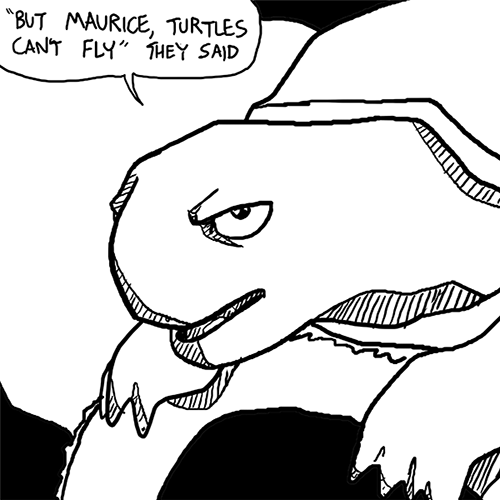
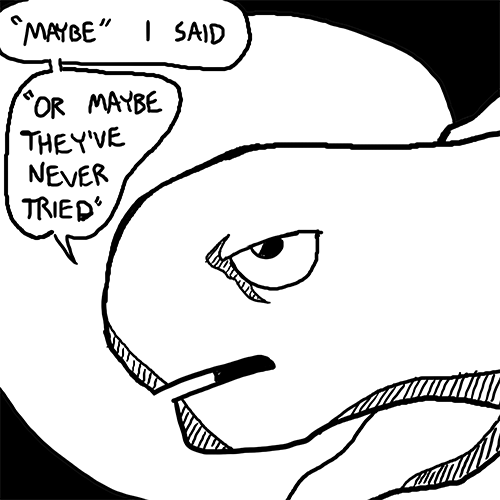
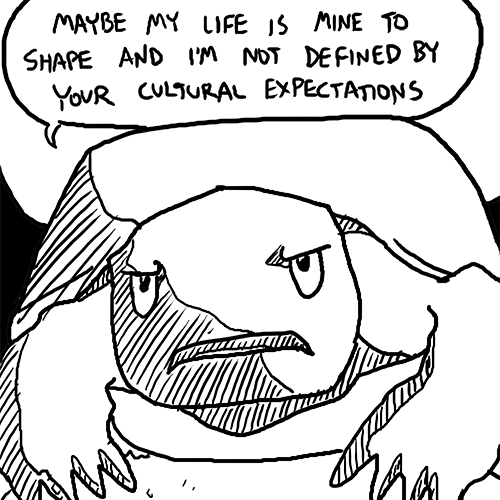
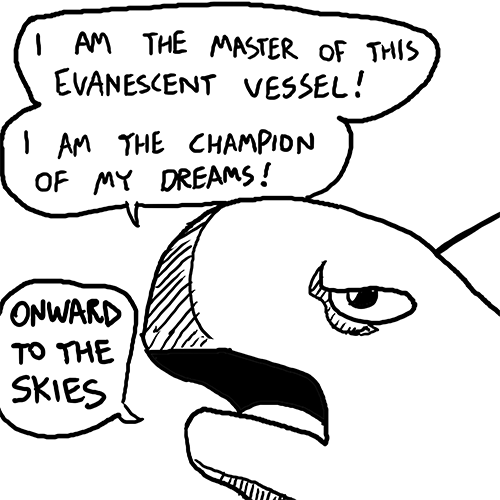
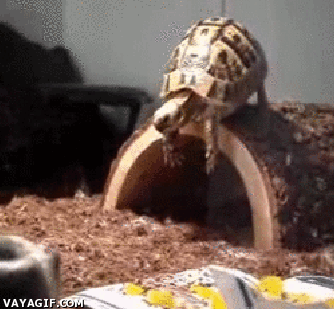
On Valencia Street, I look out the window at the hipsters on their fixed-speed bikes. The tight clothes, the tiny hats -- their major struggle as a generation seems to be reducing drag. As if success in life requires being ever ready to slip through a narrow opening.Cool quote, though I'm a little mixed on hipsters as a term these days.
http://kottke.org/14/01/the-sum-of-all-positive-integers Good lord. 1 + 2 + 3 + 4 + .... ends up equalling -(1/12). If you ever wanted to make a philosophical argument that math doesn't describe our world, start here.
2013.11.21
I just read Carol Dweck's "MindSet"... in all the books I've reading during this self-help kick, I think its identification of Fixed Mindsets vs Growth Mindsets is the most useful concept.
Precocious kids are prone to developed a Fixed Mindset, feeling that their intelligence and abilities are intrinsic, critical to why they are special, maybe even why they are loved. While that's not a sure recipe for unaccomplished lives, the tendency to seek only those activities that will validate their self-image, and also to lash out with anger at the external "causes" of their failures, is painful and ultimately self-limiting.
Describing the core of the Growth Mindset is trickier... and I don't think that's just because it's not my native outlook (for most things, anyway) -- its a more nuanced belief. It holds that the value of life is in the process, that abilities and intelligence are plastic and that constant growth and striving are the hallmarks of a life well-lived. In some ways, it's the opposite of a "goal-oriented" outlook; rather than apply a cost/benefit ratio like I always do, favoring low-hanging fruit, a person with a good Growth Mindset will reject things that are too easy as unworthy of their time and attention; much better to get a good challenge that can teach, even if the "good" results are less assured.
(One of the implications of a Growth Mindset is that maybe a bit of masochism is a good thing! And I can certainly see traces of my own Fixed Mindset in stuff like exercise... huffing and puffing during an activity that someone more fit would find easy is humiliating, and that's what I would focus on, rather than believing in a capacity for physical development.)
For a long time, I thought Challenge for Its Own Sake was borderline psychotic. But now I can see that challenge for the sake of being better at rising up to meet future challenges is probably crucial, because LIFE IS CHALLENGING. No matter where we are with intrinsic or developed abilities, whatever accomplishments dot our portfolios, the world can provide interesting challenges that we shouldn't shirk from for the sake of our precious egos.
So, changing my mindset is going to be... a challenge, Meta-ly enough. But I might be well placed; I've always disliked "trusting my gut instinct", and learning that my gut-instinct fear of having my ego bruised is masquerading behind an intellectual mask of "cost/benefit ratio" is empowering.
It's also a mindset I'd like to help instill in the brains of my friends' kids. Most of my friends are pretty smart, and their kids have lots of potential, and are probably already ahead of their peers in a lot of ways. Instilling the love of the struggle is tough; it isn't as easy to admire a struggle as it is to just say "you're smart!" and "you're so talented!" but I think the end result would be worth it.
Why I make Terrible Decisions; or, Poverty Thoughts Simply and clearly written and eye-opening. (Cracked.com actually has some similar pieces, thoughtful but in a more juvenile style: http://bit.ly/1cHLl0U ) I've got friends going through the muck of this and I don't know how to help them find an exit.
'Embarrassment is ignorance leaving your body.'
2009.01.30
Rules: Once you've been tagged, you are supposed to write a note with 25 random things, facts, habits, or goals about you. At the end, choose 25 people to be tagged. You have to tag the person who tagged you. If I tagged you, it's because I want to know more about you.
So I decided to spend the first minutes of my first day of not-quite-employment doing the following naval gazing:
- I'm a bit flummoxed by facebook's interface.... aspects of Wall-to-Wall, where to pick who's stuff is more likely to show up on my page, are always kind of hit or miss
- Actually, especially for being a techie, I tend to be a bit interface-blind. I too-quickly form an idea of how something "should" work, based on stuff I've seen before, and if it has a different workflow or even button layout, I'm often stuck for way too long.
- By the age of 8 I'd lived in Philadelphia, Cleveland, Cincinnati, Island of St. Thomas, Salamanca NY, and Glens Falls NY. A few years later it was back to Cleveland, then Boston for college, where I've been kicking around ever since.
- I love that weird, ozone-y smell you can get by sticking your nose into freezers at the supermarket.
- A theme of my life seems to be not wanting to be responsible for something going wrong. So I'm very slow to pick up new commitments, but once I have them, I'm very committed
- Another theme of my life has been avoiding things that puncture my fragile ego about how smart I am. Better to not try that hard and leave uncertainty there, then put in a concerted effort and come up short.
- My iPhone does many things but probably the single most *important* is the To Do application. Followed by phone, semi-ubiquitous web, datebook, music, random memos, timer, calculator.
- Re: not bearing to be "wrong" - I'm very careful in my language. See how I said "probably" in that last note? Plus, I use a lot of "it seems to me" and "looks like" type ducking.
- Also, I tend to be non-judgmental. Almost no one is the bad guy of their own story, they might have different goals and starting assumptions, but they're probably doing the best they can.
- Jane recently paraphrased her parents as saying about me: "we're just old people, but he listens to what we say and reacts". I'm that way with most everyone.
- I seem to have a touch of something like dyslexia, or maybe just synesthesia. Typing (or handwriting!) I'll swap "m"s and "b"s. And certain numbers evoke certain letters... I have the paper from when I was very young, writing my name "KI4K". See, "four" -> R. ("Five" -> F).
- In the late 90s and beyond, I felt that my independent web projects were a big boon to me as a professional developer. But now I'm worried all that stuff got me stuck in my ways, that I write everything in a mid-90s style.
- In fact, in general I seem dismayingly slow to pick up new computer languages and toolkits and such. These things are more powerful than my closer to "handmade" methods, but harder to understand well enough to fix when they don't do what you want.
- I wrote an original game, all in assembly language, for the Atari 2600, JoustPong, as a retro project in 2003-4. Sometimes I worry that the focus and work this took cost me my marriage, though that might be mixing cause and effect.
- Over the past few years I've gotten into making small games, like at glorioustrainwrecks.com, with its "write a game in 2 hours" events. I find this satisfying but worry that my gamewriting ambitions tend to scale down to this 2 hour box.
- I'd rather be famous than rich. I wish I was doing something to make myself famous.
- I played tuba in my church band and throughout highschool and college.
- The music I miss playing the most is the dumb, fun stuff from marching band.
- I've embraced my musical primitivist that's interested in 3 things about music: 1. Funk-ish, high contrast rhythms, 2. Lyrics 3. Catchy musical hooks. This list does not really extend to harmony or melody, except maybe the hook bit.
- I do a mean human beatbox. It's pretty good, really. Though the best tricks (mostly, doing lost of fill) I learned from a skinny white kid, Zack, in Cleveland.
- I do a bit of online dating but... I dunno. Secretly it's the kid issue that concerns me the most, tying into the responsibility-fearing thing. But also the general issue of find enough of a mutual awesomeness admiration society. And someone who can embrace, or live with, my inner child and has one of her own.
- I'm a great "uncle" though. I think it goes back to that "listen and react" thing. I mean you need to understand that kids don't operate just as "small adults" but they seem to appreciate being listened to.
- Fundamentally I (and other members of my family) are "attention seeking introverts", very self-aware, and entertaining in social settings, but sometimes a bit worn out with a lot of interactions
- Friends of mine sometimes think I come across as only interested in myself. I think that's not quite a fair accusation. But, I do assume quiet people will say as much as they feel comfortable saying! They read my lack of prompting as a lack of interest, so I've been trying to adjust that lack of prompting.
- I decided to go through these 25 things rather than fret about my recent (soon-to-be) lack of employment.
I'll follow that up with Things I'd Like To Get Done During This Unemployment:
- Declutter, declutter, declutter
- Revamp kisrael.com
- Get this one independent project done
- Keep up with exercise
- Get my long term Todo list down to, like, 20 or so items
- Get a new, good job to end the unemployment.
My buddy JZ (no not that Jay-Z) is about the only person I know who's really good at recommending songs I'll dig, he's batting about .700
JZ's latest recommendation: King Curtis' Memphis Soul Stew
Two layoff bad omens for me: one is when my company moves to a shiny new office. The other is when my commute seems fantastic. DOOM FOLLOWS
I guess humans are the only species that cook? Is it recent, evolutionarily speaking? Is enjoying cooked foods an evolutionary advantage?
I like the word "dig". It's compact, faintly retro, and suggests a deeper understanding in the way "like" or "enjoyed" doesn't.
I wonder why I get a perfect cell signal downstairs at Park Street station.
Game Jam! At the Signapore/Gambit lab. Actually sponsored by Singapore.
As long as we have each other, we will never run out of problems
2006.02.04
I've been thinking more about when in my life I lost this baseline optimism of "chances are things will work out alright." Googling my own site for a reference I realized I a long but fairly cohesive ramble about this last April, and much of what I would have said now I said then.
Going solo as a consultant (but as a co-worker pointed out, I'm not totally alone; part of my hourly rate is access to my company as a resource through me) still makes me very edgey. It probably points to several character flaws in me: I'm very recognition/reward driven when you get right down to it, and petrified of being the guy "screwing things up". The unknowns, then, of consulting gigs, especially when I'm having to play catch up with some of the technologies, is nervewracking.
And then there's those rings under my eyes...I've noticed that I seem more likely to have problems putting complex thoughts into speech lately, though I'm not sure if I'm just more aware of it now, or if it could be related to not getting enough sleep, or if it's, you know, rapidly degenerating mental facilities, probably from whatever carpet shampoo they use in my new office or something. But the sleep thing is a real possibility: my anxieties have produced some very elaborate...not quite nightmares, but strange, technology-themed haunting patterns. I realize that my subconscious brain has invented a whole new computer scripting language syntax, and so I get the fun of half of my half-awake brain fretting how it has to accept that it doesn't get what the other half is generating, because it's labeled the new stuff as the technology for work. And another time I think my brain mapped the layout of comforters on my bed into an intractable programming issue.
It's that kind of stuff that makes me wonder if I should look for some kind of medication... I dislike the idea, and am nervous about addiction, but being somewhat sleepless over stuff like this can't be useful to me.
Technology of the Moment
Speaking of being alone, my company's development crew tend to use AOL Instant Messenger. The trouble is many companies we travel to block it on their network. So I have high hopes for meebo flying under the radar for some time -- it's a web-based UI to AIM, MSN, Gtalk/Jabber, and Yahoo. Being able to reach out to my co-workers back at the ranch is mightily reassuring, even though I don't want to be too dependent on it.
Link of the Moment
 | --back to the part of kisrael that isn't all-Kirk, all-the-time... the story of this wasp that turns Roaches into mind-controlled zombies so that it can lay its eggs in them is captivatingly horrifying. |
Quote of the Moment
The real problem with having mind-controlled zombies as my servants is that it's tough to get up a really sincere-sounding round of cheers when I've come up with a plan I think is worth cheering.